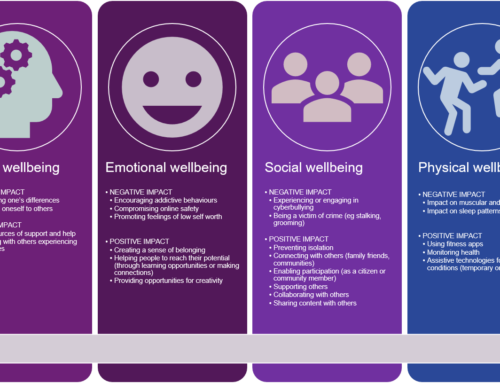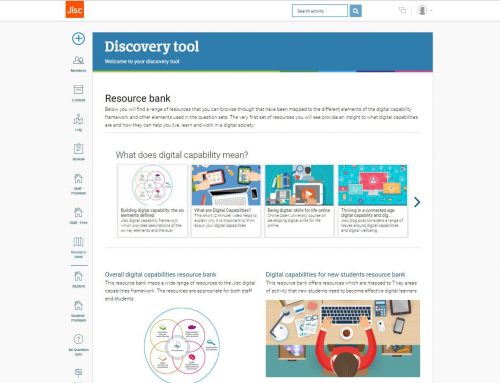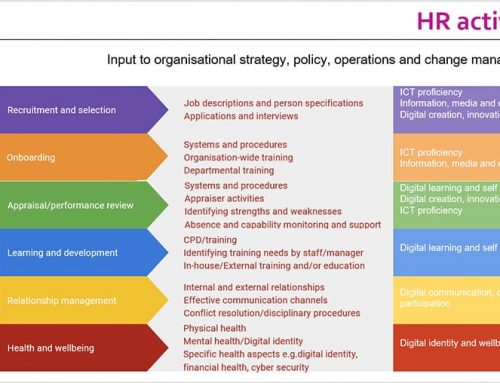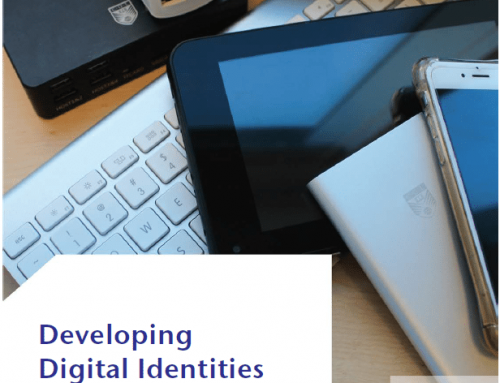I have been working as a consultant with the Jisc digital capabilities team for the last couple of years as they developed the digital capabilities service. One if the elements of the service is the discovery tool which I have written about before. The discovery tool offers a series of question sets for staff and students which aims to get them to reflect on their capabilities in different areas and offers ideas for next steps if they want to improve or enhance their capabilities, as well as links out to useful resources which provide courses, information and tools to help them.
My most recent work was on the development of a new question set for staff in FE and HE educational institutions on accessibility and inclusion. This is a subject very close to my heart so I was really pleased to be able to lead a review group to develop a series of questions and produce the feedback that people receive on completion of the question set. This was also very timely as educational institutions are focused on meeting the requirements of the Public Sector Bodies (Websites and Mobile Applications) Accessibility Regulations 2018.
I can’t share the question set here as the discovery tool is one element of the subscription to the digital capability service but I thought some might find it interesting to hear a bit more about the work. The review group process was managed totally online with no physical meetings and was carried out to a strict timeline in order to launch the question set this week at ALT-C 2019. We used a series of shared Google documents and used the comments feature to provide comments and feedback and to revise the content. The group included people from HE and FE, Jisc accessibility experts and specialists in accessibility and inclusion.
The first (and most important) piece of work was to break the subject down into smaller areas and to provide definitions and identify activities that staff do in this area. We used the Jisc digital capabilities framework and role profiles to inform this work. We wanted to make sure that the question set did not just focus on the area of producing content for websites and mobile applications, so we produced a much broader series of sections than the Government regulations. The resulting areas/sections were:
- accessibility and effective working
- accessibility and producing content (relates to the regulations)
- accessibility and resources
- accessibility and problem solving
- accessibility and relationships
- accessibility and supporting others
- accessibility and self development
For each of these areas we developed some questions which asked people to reflect on their ability to carry out various activities. Once they complete the questions they receive a printed report with an indication of their level (developing, capable or proficient) and are offered some bullet point next steps to take to take forward as appropriate. The questions link to their job roles and the process is an opportunity to reflect on the areas of accessibility and inclusion that relate directly to their role and encourage them to consider what they can do as part of their continuing professional development (CPD). We also produced an up to date resource bank on accessibility and inclusion – some of these are delivered in the printed report but people can also browse these by the areas listed above. This allows people to focus on areas that are most relevant to them.
Accessibility and inclusion is a complex area with some challenging terminology. By answering the questions and reading the feedback we ask people to engage with concepts such as intellectual as well as technical and physical accessibility, executive function, Universal Design for Learning (UDL) and the difficulties around language use. We offer a glossary to help people who are unfamiliar with these terms and also make sure the resources provide explanations around these issues. This makes some of the questions challenging to answer but mean that staff and students with different needs and preferences may get the help and support they need.
I enjoyed this work a lot and hope that the resulting question set helps staff to break down the topic into manageable areas and to help them focus on which aspects they want to enhance. The review group put in so much brilliant work to make sure the questions were relevant to a wide range of staff, whether they produce online content or not.







Leave A Comment